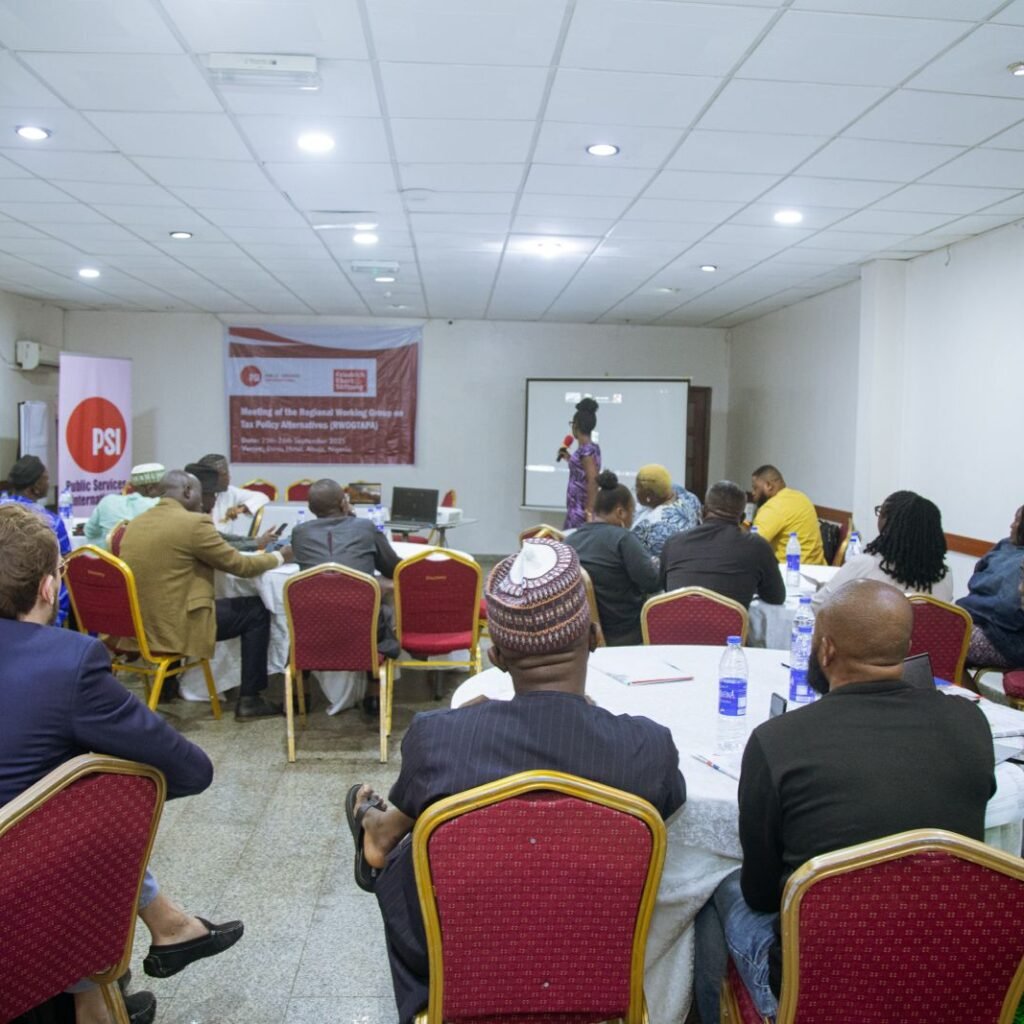
By Gabriel Ameh
Abuja, Nigeria – Trade unions, civil society groups, and tax experts from across Africa have renewed calls for multinational corporations to pay their fair share of taxes, warning that ordinary workers cannot continue to shoulder the continent’s growing revenue needs.
The appeal was made in Abuja at a two-day forum of the Regional Working Group on Tax Policy Alternatives (RWOGTAPA), organized by Public Services International (PSI) in partnership with Friedrich Ebert Stiftung (FES). Delegates from Ghana, Kenya, and Nigeria joined government officials to push for tax systems that promote equity, transparency, and social development.
From Ghana, Charles Thompson Jr, Principal Revenue Officer at the Ghana Revenue Authority, criticized the culture of tax incentives and exemptions granted to multinational enterprises, arguing they rarely translate into jobs or infrastructure. He recommended introducing corporate Alternative Minimum Taxes to help close Africa’s $400 billion annual revenue gap.

Nigeria’s government defended its ongoing reforms, with Dayi Damulak of the Federal Ministry of Finance insisting taxation remains central to national development. He explained that new laws taking effect in January 2026 will evolve with global realities, while low-income earners below ₦800,000 annually will continue to be exempted.
Kenya’s Dr. Mercy Nabure, National Treasurer of the Doctors’ Union, emphasized that tax justice is also about accountability. She accused multinationals of profit-shifting and tax evasion, stressing that citizens and unions must hold governments responsible to ensure public funds deliver tangible benefits in health, education, and social protection.

Providing a European perspective,Lennart Oestergaard, FES Country Representative, said the real issue is not only how much tax is collected, but also how transparently it is spent. “In Germany, people pay high taxes but see results free healthcare, reliable power, and good transport. Africa must show taxpayers that revenue works for them,” he noted.
At the end of the meeting, participants unanimously called for progressive tax systems that reduce the burden on ordinary citizens while compelling corporations and high-income earners to contribute fairly.







